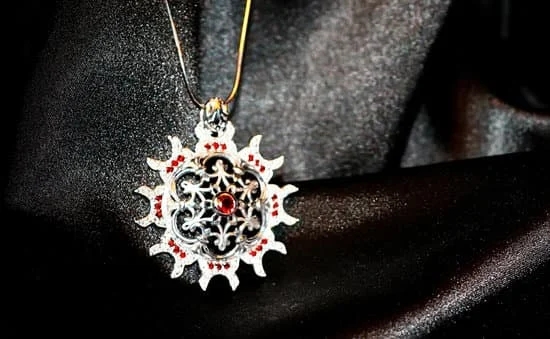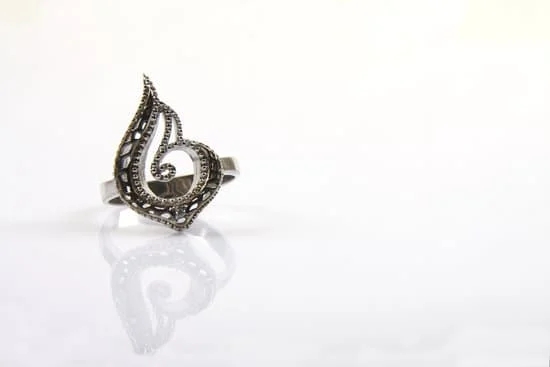The jewelry industry holds a significant role in our society, symbolizing love, beauty, and luxury. However, behind the dazzle and glamour lies an industry that has faced criticism for its ethical practices, especially regarding the sourcing of diamonds. In recent years, there has been an increasing demand for responsibly sourced diamonds from consumers who want their purchases to have a positive impact on both the environment and communities.
Major jewelry houses have started recognizing the importance of responsible diamond sourcing and are taking steps towards ensuring that the diamonds they use meet strict ethical standards. Some of these leading brands include Tiffany & Co., Cartier, Harry Winston, De Beers, Chopard, and Bvlgari. These iconic names in the jewelry industry are making a difference by prioritizing sustainability and transparency in their diamond procurement processes.
By using responsibly sourced diamonds, these major jewelry houses aim to address the negative environmental and social consequences associated with diamond mining. The extraction of diamonds can lead to deforestation, habitat destruction, water pollution, displacement of local communities, and human rights abuses. Through responsible sourcing practices, these brands are striving to minimize these impacts and contribute positively to vulnerable communities while ensuring the integrity of their products.
In this article series, we will delve into each major jewelry house mentioned above to explore their commitment to responsible diamond sourcing. We will examine their efforts towards preserving the environment and supporting local communities affected by diamond mining activities. By shedding light on the initiatives taken by these famous jewelry brands, we hope to educate consumers on making informed choices when it comes to buying jewelry with ethically sourced diamonds.
Understanding the Impact of Diamond Mining on the Environment and Communities
Diamond mining has a significant impact on both the environment and local communities. It is important to understand these impacts in order to appreciate the significance of responsibly sourced diamonds in the jewelry industry.
One of the major environmental concerns associated with diamond mining is the destruction of habitats. Diamond mines often require large-scale excavations, which can lead to deforestation and displacement of wildlife. Additionally, the use of heavy machinery and chemicals in the mining process can result in pollution of water sources, soil degradation, and disturbance of ecosystems.
Moreover, diamond mining can have detrimental effects on local communities. Many diamond mines are located in developing countries where labor laws and regulations may be lax. This can lead to unethical practices such as child labor, unfair wages, and unsafe working conditions. Furthermore, mining operations often disrupt local economies, putting pressure on traditional livelihoods such as farming or fishing.
To combat these negative impacts, responsible diamond sourcing involves measures taken by jewelry houses to ensure that diamonds are ethically extracted and traded. This includes promoting transparency throughout the supply chain, enforcing strict labor standards, supporting local communities through initiatives like education and healthcare programs, as well as minimizing environmental harm through sustainable practices.
Overall, understanding the impact of diamond mining on the environment and communities highlights why it is crucial for major jewelry houses to prioritize responsibly sourced diamonds. By doing so, these companies not only contribute to safeguarding nature’s resources but also support sustainable development for communities affected by this industry.
What Does It Mean for a Jewelry House to Use Responsibly Sourced Diamonds?
To understand what it means for a jewelry house to use responsibly sourced diamonds, it is important to first define the concept of responsibly sourced diamonds. Responsibly sourced diamonds refer to diamonds that are mined and produced in an ethical and sustainable manner, taking into consideration both environmental and social aspects. This means that the entire journey of the diamond, from mining to final sale, follows certain guidelines and standards that prioritize the well-being of local communities and ecosystems.
For a jewelry house to be considered as using responsibly sourced diamonds, they must adhere to certain principles and practices. These may include:
- Traceability: The jewelry house should have a system in place to trace the origin of each diamond in their collection. This ensures transparency and accountability throughout the supply chain.
- Ethical Mining Practices: Responsible sourcing involves supporting diamond mining operations that prioritize worker safety, fair labor practices, and respect for human rights. Jewelry houses should work with mines that do not exploit their workers or abuse human rights.
- Environmental Impact: Responsible sourcing also takes into account the environmental impact of diamond mining. Jewelry houses should support initiatives that minimize harm to ecosystems, such as using environmentally sustainable mining techniques or supporting reforestation efforts.
- Certification and Standards: Many jewelry houses partner with organizations that set standards for responsible diamond sourcing, such as the Responsible Jewelry Council (RJC) or initiatives like Kimberley Process Certification Scheme (KPCS). By obtaining certifications from these organizations, jewelry houses demonstrate their commitment to responsible sourcing.
By following these principles, jewelry houses can ensure that their diamonds are ethically and sustainably produced. This not only helps protect local communities and ecosystems but also gives consumers peace of mind knowing that their purchase supports responsible practices in the industry. In the next sections, we will explore some major jewelry houses known for their use of responsibly sourced diamonds.
Examples
- Tiffany & Co.: Established its own Diamond Source Initiative that provides detailed provenance information for each diamond in its inventory.
- Cartier: Works closely with suppliers who adhere to ethical and sustainable mining practices. It also supports community development projects in diamond mining areas.
- Harry Winston: Has a rigorous selection process, ensuring that its diamonds come from mines that prioritize both environmental stewardship and responsible labor practices.
Overall, utilizing responsibly sourced diamonds reflects a commitment from the jewelry industry to ethical and sustainable practices. Through traceability, ethical mining, environmental impact considerations, and adherence to certifications and standards, jewelry houses demonstrate their dedication to providing diamonds that are not only beautiful but also have a positive impact on the world.
Tiffany & Co.
Tiffany & Co.’s Commitment to Ethical Diamond Sourcing
As one of the most well-known jewelry houses in the world, Tiffany & Co. has long been recognized as a leader in ethical diamond sourcing. The company has a strong commitment to ensuring that its diamonds are responsibly sourced and free from conflict. Tiffany & Co. was one of the first jewelry houses to establish rigorous standards for ethical diamond mining, paving the way for others in the industry to follow suit.
The Kimberley Process and Beyond
Tiffany & Co. is a staunch supporter of the Kimberley Process Certification Scheme (KPCS), which was established in 2003 to prevent conflict diamonds from entering the legitimate supply chain. The company goes beyond the requirements of the KPCS by implementing additional measures to trace its diamonds back to their origins and ensure responsible practices throughout the entire supply chain. For example, Tiffany & Co. requires that all of its suppliers adhere to strict guidelines regarding human rights, labor practices, and environmental impact.
Tiffany’s Efforts Beyond Its Own Supply Chain
In addition to focusing on its own diamond sourcing practices, Tiffany & Co. actively works towards improving responsible diamond mining practices outside of its own supply chain. The company advocates for transparent and accountable mining practices through partnerships with organizations such as Conservation International and Greenpeace. By working together with these organizations, Tiffany & Co. aims to promote sustainable mining practices that minimize environmental harm and uphold social responsibility.
Overall, Tiffany & Co.’s commitment to ethical diamond sourcing sets a high standard for other jewelry houses in the industry. Their efforts not only ensure that their customers can wear their jewelry with confidence but also help drive positive change in an industry that has historically been plagued by unethical practices.
Cartier
Cartier is a renowned jewelry house that has made significant efforts to preserve the integrity of diamonds through responsible sourcing. As an industry leader, Cartier recognizes the importance of ensuring that their diamonds are ethically and sustainably obtained, minimizing any negative impact on the environment and communities involved in the mining process.
One way Cartier achieves responsible diamond sourcing is by adhering to the Kimberley Process Certification Scheme (KPCS). The KPCS is an international agreement established in 2003, aimed at preventing conflict diamonds from entering the global market. It requires participating countries to certify that their rough diamond exports are conflict-free.
In addition to supporting the KPCS, Cartier actively seeks out suppliers who uphold high ethical standards in their mining practices. They strive to work primarily with diamond producers who prioritize environmental protection, fair labor practices, and community development. By partnering with these suppliers, Cartier can ensure that their diamonds are sourced responsibly from mines that prioritize sustainability and social responsibility.
Overall, Cartier’s commitment to preserving the integrity of diamonds through responsible sourcing sets them apart as a major jewelry house that values ethical practices and works towards creating a more sustainable industry. Their focus on supporting the KPCS and seeking out suppliers who uphold high ethical standards demonstrates their dedication to making a positive impact on both the environment and communities affected by diamond mining.
Harry Winston
Harry Winston is a renowned jewelry house known for its exceptional diamonds and commitment to ethical sourcing practices. With a deep understanding of the impact of diamond mining on the environment and communities, Harry Winston has taken substantial steps towards responsible diamond sourcing.
The Importance of Traceability in Diamond Sourcing
One of the key aspects of Harry Winston’s commitment to ethical practices is its emphasis on traceability. The jewelry house ensures that each diamond it sources can be traced back to its origin, providing transparency throughout the supply chain. This traceability enables Harry Winston to verify that their diamonds come from legitimate sources, free from conflict or human rights abuses.
Supporting Local Communities and Preserving the Environment
In addition to traceability, Harry Winston places great importance on supporting local communities and minimizing environmental impact. The company actively works with mining communities to implement social development programs that improve education, healthcare, and infrastructure. By engaging with local stakeholders, Harry Winston aims to create positive change in these communities and contribute to their sustainable development.
To reduce its environmental footprint, Harry Winston promotes responsible mining practices. The jewelry house supports initiatives that prioritize land rehabilitation after mining activities are completed and promote water conservation measures. By working closely with suppliers who share their values, Harry Winston strives to ensure that their diamonds are not only beautiful but also sourced in an environmentally sensitive manner.
A Commitment to Responsible Sourcing
Harry Winston’s dedication to responsible diamond sourcing goes beyond mere compliance with industry standards. The jewelry house actively participates in industry organizations such as the Responsible Jewellery Council (RJC) and adheres to their rigorous standards for responsible business practices.
Through this commitment, Harry Winston aims to set an example for other luxury jewelry brands by demonstrating that it is possible-and necessary-to integrate sustainable and ethical practices into every aspect of the diamond supply chain.
Overall, Harry Winston’s focus on traceability, community involvement, and environmental preservation makes it a standout jewelry house in the realm of responsibly sourced diamonds. By cultivating transparency and taking concrete steps to support local communities and protect the environment, Harry Winston has established itself as a leader in ethical practices within the diamond industry.
De Beers
De Beers, one of the leading jewelry houses in the world, has taken significant steps to promote responsible sourcing of diamonds. Through its initiative called “Forevermark,” De Beers aims to build consumer trust by ensuring that its diamonds are ethically and sustainably sourced.
The “Forevermark” initiative focuses on three key areas: responsible sourcing, environmental protection, and supporting communities. In terms of responsible sourcing, De Beers implements strict guidelines and standards to guarantee that their diamonds are sourced from mines that adhere to ethical practices. They work closely with their partners and suppliers to ensure traceability throughout the entire supply chain.
In addition to responsibly sourcing diamonds, De Beers is committed to minimizing the environmental impact of diamond mining. They prioritize the conservation of natural resources, reducing carbon emissions, and protecting biodiversity. Through their initiatives such as Diamond Route and Forevermark Conservation Program, De Beers actively supports land rehabilitation and wildlife preservation in areas where their mines are located.
Another important aspect of De Beers’ responsible sourcing initiative is their support for local communities. They invest in education, healthcare, infrastructure development, and job creation to improve the lives of people living near their mining operations. It is crucial for De Beers to have a positive social impact on these communities and help them thrive alongside their diamond mining activities.
| Initiative | Description |
|---|---|
| Responsible Sourcing Guidelines | De Beers implements stringent guidelines for its diamond sourcing process to ensure adherence to ethical practices. |
| Environmental Protection | Through initiatives like Diamond Route and Forevermark Conservation Program, De Beers focuses on environmental conservation and reducing the impact of mining. |
| Community Support | De Beers invests in community development, education, healthcare, infrastructure, and job creation to improve the lives of people living near their mines. |
De Beers’ “Forevermark” responsible sourcing initiative sets a high standard for other major jewelry houses in the industry. By focusing on responsible sourcing, environmental protection, and community support, De Beers aims to build consumer trust and ensure that their diamonds are not only beautiful but also ethically sourced.
Chopard
When it comes to sustainable and ethical diamond sourcing, Chopard stands out as a major jewelry house that is leading the way. Chopard has made a commitment to responsible practices in every aspect of their business, from mine to market. They prioritize transparency, traceability, and environmental stewardship in their diamond sourcing process.
Chopard’s dedication to sustainability is evident through their partnership with the Alliance for Responsible Mining (ARM) and the Responsible Jewelry Council (RJC). The brand actively supports ARM’s Fairmined certification, which ensures that the diamonds they use are sourced from artisanal mining communities that follow ethical practices. Through this initiative, Chopard helps create fair working conditions and safe environments for miners while minimizing negative impacts on local ecosystems.
In addition to their efforts with ARM, Chopard also collaborates with the RJC to ensure that their entire supply chain meets rigorous ethical standards. The RJC certification guarantees that the diamonds used by Chopard have been responsibly mined, ensuring that they do not contribute to conflicts or human rights abuses. Furthermore, Chopard is transparent about their supply chain, allowing customers to track the journey of their diamonds from mine to showroom.
| Initiatives | Results |
|---|---|
| Alliance for Responsible Mining partnership | Fairmined certified diamonds sourced from ethical mining communities |
| Responsible Jewelry Council collaboration | RJC certification ensuring ethically sourced diamonds |
| Transparent supply chain | Customers can trace origin of diamonds from mine to showroom |
Bvlgari
Bvlgari is a prominent name in the jewelry industry that stands out for both its impeccable craftsmanship and commitment to responsible diamond sourcing. The Italian luxury brand recognizes the importance of ensuring that their diamonds are ethically and sustainably sourced, making conscious efforts to minimize their environmental impact and prioritize the well-being of communities involved in diamond mining.
When it comes to responsibly sourced diamonds, Bvlgari has implemented stringent guidelines and standards throughout its supply chain. They have established close relationships with trusted suppliers who adhere to their strict ethical requirements, ensuring that every diamond they use meets the highest standards of responsible sourcing. This includes tracing each diamond back to its origin, verifying that it has been obtained through legal channels, and minimizing the potential for conflict diamonds to enter their supply chain.
In addition to their commitment to responsible sourcing, Bvlgari also strives to support local communities in diamond-producing regions. Through various social initiatives, they aim to strengthen education, healthcare, and entrepreneurship opportunities for these communities. By investing in sustainable development projects and partnering with non-profit organizations, Bvlgari seeks to make a positive impact on the lives of those involved in the diamond industry.
By combining fine craftsmanship with responsible diamond sourcing practices, Bvlgari sets itself apart as a leading brand in the realm of sustainable luxury jewelry. They demonstrate that it is possible for high-end jewelry houses to prioritize ethical practices without compromising on beauty or quality. Bvlgari’s commitment serves as an inspiration for other major jewelry houses within the industry to follow suit and contribute towards a more sustainable future for all stakeholders involved in diamond mining.
Conclusion
In conclusion, there are several major jewelry houses that stand out for their use of responsibly sourced diamonds. Tiffany & Co. has been a pioneer in ethical diamond sourcing and has set the standard for other companies to follow. They have established transparency in their supply chain and strive to minimize their environmental impact.
Cartier is another notable jewelry house that places a strong emphasis on preserving the integrity of diamonds through responsible sourcing. They are committed to supporting communities where diamonds are mined and ensuring fair labor practices throughout their supply chain.
Harry Winston is known for its commitment to traceability and ethical practices in diamond sourcing. They work closely with suppliers to ensure that their diamonds are obtained from conflict-free sources and promote sustainable mining practices.
De Beers, through its “Forevermark” responsible sourcing initiative, has taken steps to build consumer trust by providing reassurance about the origin and quality of its diamonds. They have implemented rigorous standards for suppliers and support initiatives that benefit local communities.
Chopard stands out for leading the way in sustainable and ethical diamond sourcing. They prioritize transparency, traceability, and environmental stewardship in their supply chain.
Lastly, Bvlgari combines fine craftsmanship with responsible diamond sourcing. They actively promote responsible mining practices and are committed to supporting local communities impacted by diamond mining.
Overall, these major jewelry houses serve as role models in the industry for their dedication to using responsibly sourced diamonds. Their efforts not only ensure that customers can enjoy beautiful jewelry with peace of mind, but also contribute positively towards environmental sustainability and social responsibility in the diamond mining communities. By choosing jewelry from these companies, customers can feel confident that they are making an ethical choice while looking fabulous at the same time.
Frequently Asked Questions
What companies sell ethical diamonds?
Several companies sell ethical diamonds, with some prominent examples being Brilliant Earth, MiaDonna, and Bario Neal. These companies have built their business models on offering ethically sourced diamonds to consumers who prioritize socially responsible practices in the diamond industry.
They strive to ensure that their diamonds are conflict-free, meaning they are not associated with violence, child labor, or human rights abuses often seen in certain regions notorious for diamond extraction. Ethical diamond companies also seek to minimize their environmental impact by supporting sustainable mining practices and promoting transparency throughout the entire supply chain.
Which diamonds are ethically sourced?
Ethically sourced diamonds refer to diamonds that have been obtained in a responsible manner, without contributing to social or environmental harm. This can include diamonds that are both conflict-free and environmentally friendly.
Conflict-free diamonds are those that have been mined under legitimate conditions and not used to finance armed conflicts or rebel groups seeking control over precious resources. On the other hand, environmentally friendly diamonds might be mined using methods that minimize damage to ecosystems or involve recycled diamonds obtained through processes like repurposing pre-owned jewelry or extracting carbon from industrial settings.
Are Tiffany diamonds ethically sourced?
Tiffany & Co., a renowned luxury jewelry brand, has made efforts in recent years to source its diamonds ethically and ensure transparency in its supply chain. In 1999, Tiffany became one of the founding members of the Diamond Source Initiative (D.I.S.
), which aimed to establish guidelines and standards for ensuring ethical sourcing in the diamond industry. They require suppliers to comply with their rigorous standards regarding human rights, fair labor practices, and environmental sustainability as part of their commitment to responsible sourcing.

Welcome to my jewelry blog! My name is Sarah and I am the owner of this blog.
I love making jewelry and sharing my creations with others.
So whether you’re someone who loves wearing jewelry yourself or simply enjoys learning about it, be sure to check out my blog for insightful posts on everything related to this exciting topic!





